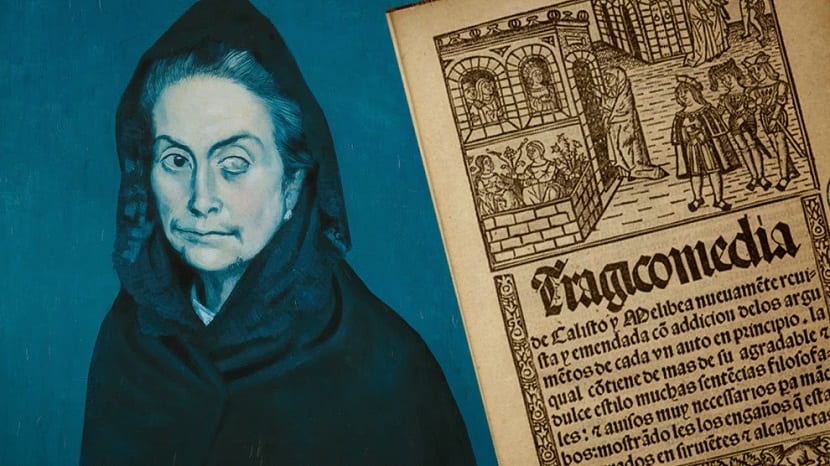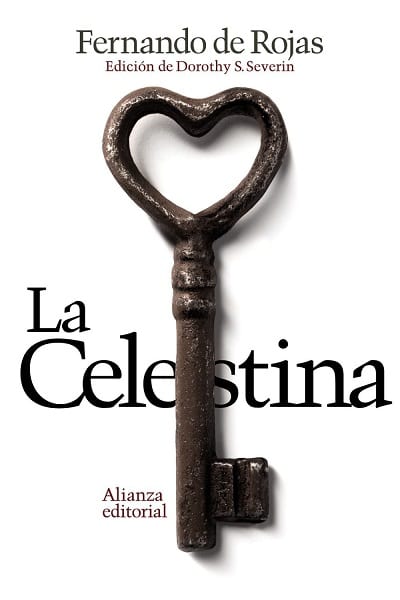"La Celestina", by Fernando Rojas, is the dramatic work most significant and relevant of the XNUMXth century. It reflects the crisis of medieval values and materialism that characterized Pre-Renaissance society.
It was in the middle of XV century when the dramatic tradition in Castilian began to emerge, but they were only theatrical activities that took place on popular festivals or religious dates such as Corpus Christi or Christmas. It is at the end of the XNUMXth century when the theater is also established in the palaces to entertain the court. Figures such as Gómez Manrique, characterized by a religious theater and Juan del Encina, by a religious and profane theater, stood out. However, the most striking work of all during this time period was "La Celestina", anonymous work, but attributed to the author Fernando de Rojas.
The work
"La Celestina", in their twenty one acts, presents the love affair between Melibea and Calisto, with the interested intervention of course by La Celestina, the old pimp.
Fernando de Rojas himself declared that he composed the work from the first act, which he already found written. Currently, it is accepted that "La Celestina" it is the result of two authors: an unknown author who would have written the first act, and the rest of the work, which would be a composition by Fernando de Rojas.
Theme of the work
The greed of Celestina, the pimp who acts between Melibea and Calisto, does not want to share her earnings with Calisto's servants, in league with her, leads her to a tragic death.
El love between Calisto and Melibea it is also unfortunate. Callisto dies and she commits suicide.
Characters of the work
- Celestine: He is the main character in the play and also the most elaborate. She is a vicious old woman, a drinker, a former prostitute and a very treacherous one. Two of the strongest passions that drive your behavior are selfishness and greed. She is cunning, foul-mouthed, and highly manipulative.
- Callisto: He is a character with grotesque features (he acts in a way and speaks in a totally different way). Love is at the center of his existence and he paints it as a noble and selfless feeling, but as the book progresses, his actions are shown to contradict his words.
- melibea: She is a girl with a determined attitude. At first she is defensive about the love Callisto shows for her, but eventually falls in love. When she sees Callisto dead, she decides to commit suicide. Unlike Calisto, Melibea is aware of what it means to enter an illicit relationship and her suicide is one more consequence of the abandonment of established values.
- Supporting actors: Sempronio and Pármeno, Callisto's servants; Elicia and Areúsa, prostitutes controlled by Celestina.
Purpose of the work
Fernando de Rojas, in the very prologue of the work, claims to have written it with the intention of criticizing the irresponsible and irrational acts of lovers, who as a consequence of their immorality, plunge into disgrace.
Fernando de Rojas also writes "La Celestina" with an existential philosophical sense, since for him, life is a continuous struggle that only causes pain and misfortune.
Brief fragment of the work
SEMPRONIO: Oh greedy old woman, throat thirsty for money! Won't you be happy with a third of what you earned?
CELESTINA: What third part? Go with God from my house you, and do not cry out, do not gather the neighborhood! Do not make me lose my mind, do not want Calisto's things and yours to go out on the spot.
SEMPRONIO: Give voices or shouts, that you will fulfill what you promised or fulfill your days today!
ELICIA: Put the sword in, for God's sake! Hold on, Parmeno, hold on! Don't kill her that madman!
CELESTINA: Justice, justice, gentlemen neighbors; justice, these ruffians kill me in my house!
SEMPRONIO: Ruffians or what? Wait, sorceress, that I will make you go to hell with letters.
CELESTINA: Oh, that I have died, oh, oh! Confession, confession!
PÁRMENO: Give it, give it; finish it, well you started! That they will feel us! Die, die; of the enemies, the least!


